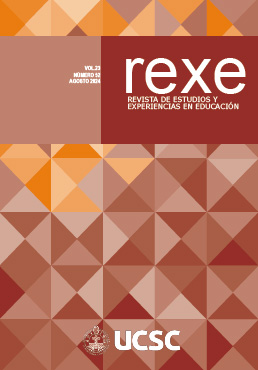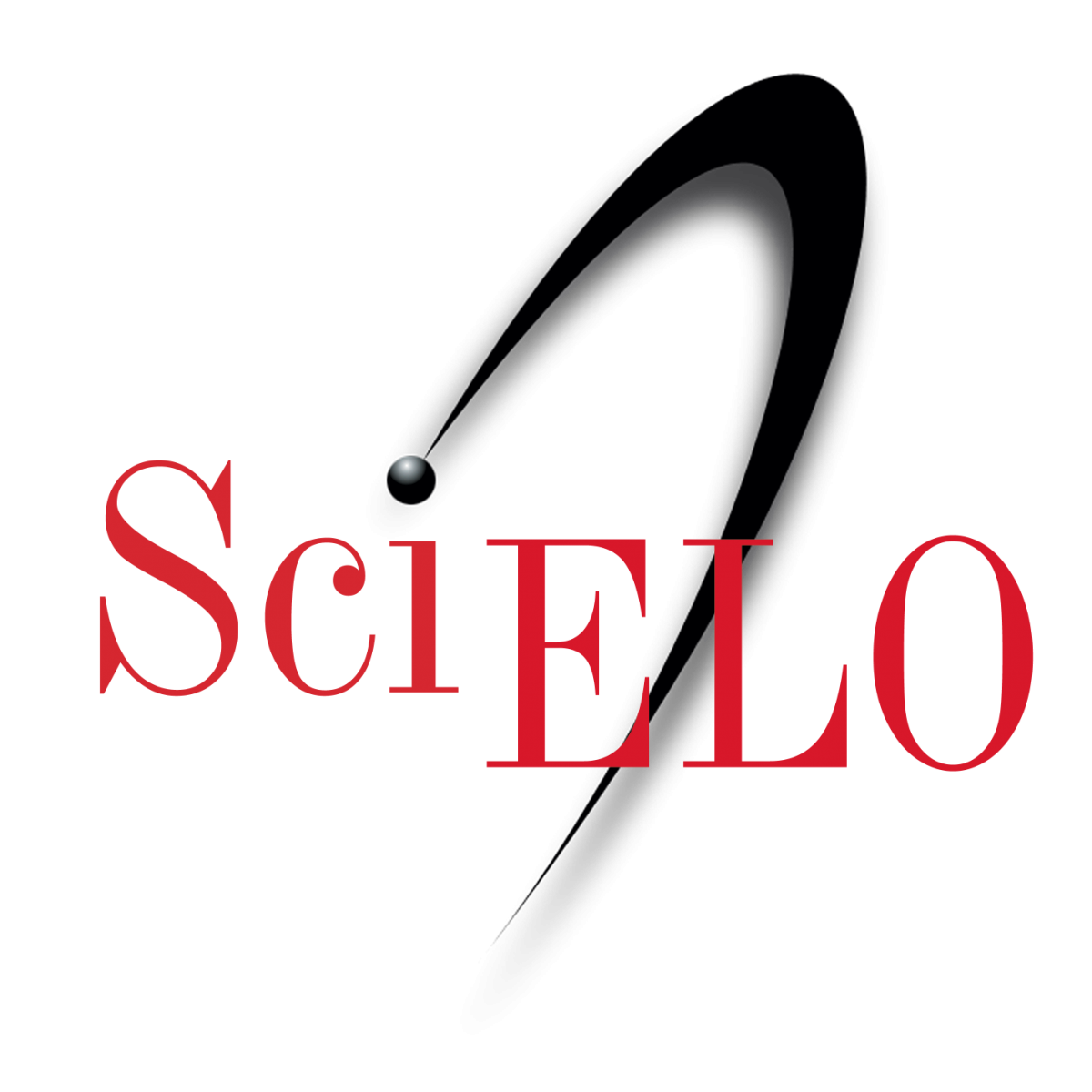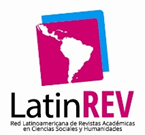KNOWLEDGE DIALOGUE FOR CONCEPTUAL CHANGE OF THE MOON’S PHASES: A CASE IN IQUIQUE
DOI:
https://doi.org/10.21703/rexe.v23i52.2494Keywords:
Astronomy, Knowledge dialogue, Alternative conceptions, Conceptual changeAbstract
Efforts to mainstream interculturality in Chilean education are stressed by the standardization of learning results. This harms the dialogue between science and the knowledge developed by indigenous peoples. Particularly, astronomy presentssignificant contrasts with different worldviews, for example, the Moon’s phases, the position of the Sun, the seasons and among others. These contrasts motivate this study, in such a way that the objective of this research is to analyze the effects of the knowledge dialogue between the Aymara people, modern astronomy and the alternative conceptions of first-year students of the Eagles' College in Iquique, with respect to to the topic of the Moon’s phases. For this purpose, a diagnosis of alternative conceptions was carried out on a group of 14 students. Subsequently, the same students participated in an intercultural astronomy activity and the conceptual changes were evaluated. For this, the Hake index was used, which allows measuring the learning gain. In the diagnosis, it was shown that the majority of students present alternative conceptions about the Moon’s phases, such as, for example, 64.3% of the students believed that during a solar eclipse the Moon is in the full Moon phase. And regarding the evaluation of the effectiveness of the knowledge dialogue, the group demonstrates a gain in the average level of learning, determined by g = 0.468. Thus, it is concluded that the dialogue of knowledge favors both conceptual change and the learning of concepts associated with Moon’s phases.
Downloads
References
Ausubel, D. (2002). Adquisición y retención del conocimiento. Una perspectiva cognitiva. Paidós.
Bello, S. (2018) Ideas previas y cambio conceptual. Educación Química, 13(3), 210-217. https://doi.org/10.22201/fq.18708404e.2004.3.66178
Camino, N., Nardi, R., Pedreros, R., García, E., Castiblanco, O. (2016) Retos de la enseñanza de la Astronomía en Latinoamérica. Revista Góndola, Enseñanza y Aprendizaje de las Ciencias, 7(1), 1-2. https://revistas.udistrital.edu.co/ojs/index.php/GDLA/article/view/10617/11610
Carmona, A. (1994). Reflexiones sobre la enseñanza de la Astronomía en la ESO. Enseñanza de las Ciencias de la Tierra, 2(2), 404-409. https://www.raco.cat/index.php/ECT/article/view/88172/141237
Carrascosa, J. (2005). El problema de las concepciones alternativas en la actualidad (parte II). El cambio de concepciones alternativas. Revista Eureka sobre Enseñanza y Divulgación de las Ciencias, 2(3), 388-402. https://revistas.uca.es/index.php/eureka/article/view/3904
Galperin, D. (2011). Propuestas Didácticas para la enseñanza de la astronomía. Ciencias Naturales. Líneas de acción didáctica y perspectivas epistemológicas. Noveduc.
Gangui, A. (2007). Los científicos y la alfabetización en astronomía. Anales de la Asociación Física Argentina, 18(1), 24-27. https://ri.conicet.gov.ar/handle/11336/20810
Hake, R. (1998). Interactive-engagement versus traditional methods: A six- thousand-student survey of mechanics test data for introductory physics courses. American Journal of Physics, 66(1), 64-74. http://dx.doi.org/10.1119/1.18809
Hernández Sampieri, R., Fernández, C., y Baptista, M. (2010). Metodología de la Investigación (5° edición). McGraw Hill.
Iglesias, M., Quinteros, C., y Gangui, A. (2007). Astronomía en la escuela: situación actual y perspectivas futuras. Actas de la XV Reunión Nacional de Educación en la Física, 68-80.
Kanli, U. (2015). Using a Two-Tier Test to Analyze Students’ and Teachers’ Alternative Concepts in Astronomy. Science Education International, 26(2), 148-165.
López, A. (2011). La etnoastronomía como campo académico: esbozo de un programa sudamericano. Instituto de Ciencias Antropológicas, Universidad de Buenos Aires y CONICET, Argentina.
Mahmud, M. y Gutiérrez, O. (2010). Estrategia de Enseñanza Basada en el Cambio Conceptual para la Transformación de Ideas Previas en el Aprendizaje de las Ciencias. Formación universitaria, 3(1), 11-20. https://dx.doi.org/10.4067/S0718-50062010000100003
Mondaca, C. y Bustos, R. (2020). La importancia de la construcción de la memoria histórica aymara en estudiantes de educación primaria desde un enfoque curricular intercultural bilingüe crítico en el norte de Chile. Archivos Analíticos de Políticas Educativas, 28(157). https://doi.org/10.14507/epaa.28.4731
Peréz, M. y Argueta, A. (2011). Saberes indígenas y diálogo intercultural. Cultura y representaciones sociales, 5(10), 31-56. https://www.scielo.org.mx/scielo.php?script=sci_arttext&pid=S2007-81102011000100002
Rabanales, F., y Vanegas-Ortega, C. (2021). Concepciones alternativas sobre astronomía en estudiantes de educación básica y media de la Región Metropolitana de Chile. Estudios Pedagógicos, 47(2), 247-268. http://www.scielo.cl/scielo.php?script=sci_arttext&pid=S0718-07052021000200247&lng=es&nrm=iso
Rapimán, D. (2019). Intervención educativa intercultural para un diálogo de saberes indígena y escolar. Educar Em Revista, 35(76), 219–237. https://doi.org/10.1590/0104-4060.63000
Rivera, A., Galdós, S., y Espinoza, E. (2020). Educación intercultural y aprendizaje significativo: un reto para la educación básica en el Ecuador. Conrado, 16(75), 390-396. http://scielo.sld.cu/scielo.php?script=sci_arttext&pid=S1990-86442020000400390
Rother, T. (2005). Conflicto Intercultural y Educación en Chile: Desafíos y Problemas de la Educación Intercultural Bilingüe (EIB) para el Pueblo Mapuche. Revista Austral de Ciencias Sociales, 9, 71-84. http://revistas.uach.cl/pdf/racs/n9/art07.pdf
Ruiz, P. (2018). Los espacios y la frecuencia de contacto con la diversidad cultural como factores de desarrollo de la sensibilidad intercultural. Aposta. Revista de Ciencias Sociales, (76), 187-213. https://www.redalyc.org/journal/4959/495956745008/html/
Slater, E., Morris, J., y McKinnon, D. (2018). Astronomy alternative conceptions in preadolescent students in Western Australia. International Journal of Science Education, 40(17), 2158-2180. https://www.tandfonline.com/doi/full/10.1080/09500693.2018.1522014
Tomayo, O. (2002). De las concepciones alternativas al cambio conceptual en la enseñanza y aprendizaje de las ciencias. Plumilla Educativa, 2(1), 57-65. https://doi.org/10.30554/plumillaedu.2.661.2002
Viera, T. (2003). El aprendizaje verbal significativo de Ausubel. Algunas consideraciones desde el enfoque histórico cultural. Universidades, (26), 37-43. https://www.redalyc.org/pdf/373/37302605.pdf
Varela-Losada, M., Pérez-Rodríguez, U., Álvarez-Lires, M., y Arias-Correa, A. (2015). Concepciones alternativas sobre Astronomía de profesorado español en formación. Ciência & Educação (Bauru), 21, 799-816. https://doi.org/10.1590/1516-731320150040002
Vygotsky, L. (1995). Pensamiento y lenguaje. Paidós.
Walsh, C. (2010). Interculturalidad crítica y educación intercultural. Construyendo interculturalidad crítica, 75-96.
Downloads
Published
Issue
Section
License
Copyright (c) 2024 Paulina Quispe-López, Rodrigo Rivera-Contreras, José Luis Díaz-Polanco

This work is licensed under a Creative Commons Attribution 4.0 International License.
Open Access Policy
This journal provides immediate open access to its content, based on the principle that offering the public free access to research fosters greater global knowledge exchange.
License
The REXE Journal, “Journal of Studies and Experiences in Education,” published by the Faculty of Education at the Universidad Católica de la Santísima Concepción, is distributed under a License. Creative Commons Atribución 4.0 Internacional.






